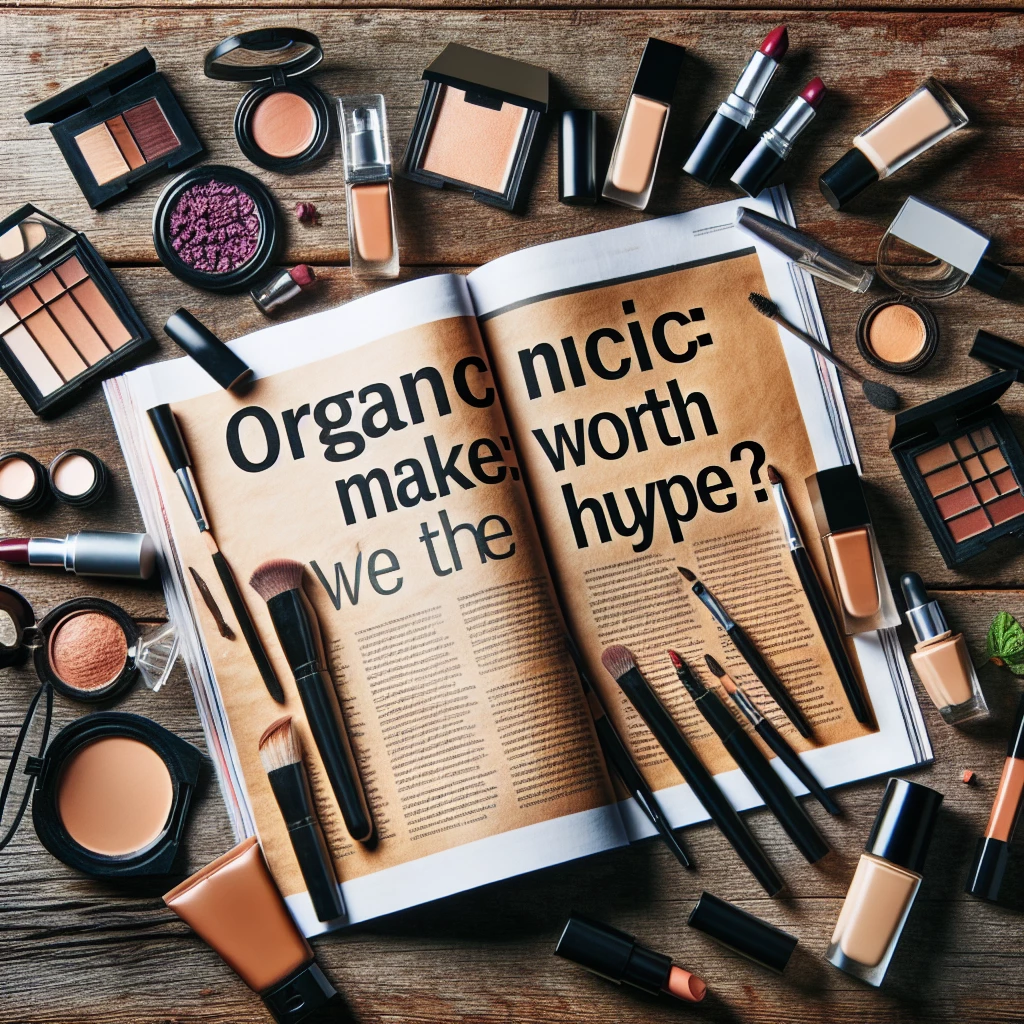Organic makeup has been enjoying a surge in popularity, with more and more beauty enthusiasts turning to these natural solutions. Proponents tout their skin-friendly, environment-friendly properties, while skeptics wonder if the hype and the higher price tag are justified. This article dives deep into the world of organic makeup to separate fact from the myth. We will explore what defines organic makeup, how it compares to conventional products, health implications, and cost-effectiveness, among other topics.
Understanding Organic Makeup
Organic makeup is, in essence, a product made from ingredients raised, grown or procured without the use of synthetic fertilizers, pesticides, or genetically modified organisms. It's also free from parabens, phthalates, and other potentially harmful chemicals. This gives organic makeup a reputation for being 'cleaner' or 'safer' than its conventional counterparts.
It’s important to note that while some brands may advertise their products as organic, they might not be 100% organic and could still contain some synthetic components. The cosmetic industry's regulations on organic labeling can be a bit lax, making it essential for consumers to do their homework.
Understanding the difference between organic and natural makeup is also crucial, as some consumers confuse the two. While both are crafted from natural ingredients, for a product to be labeled organic, the ingredients must be farmed organically.
Is Organic Makeup Better for Your Skin?
Many people choose organic makeup due to its skin-friendly properties. As organic makeup largely excludes harsh additives, it can be beneficial for those with sensitive or problematic skin. Natural components can often be less irritating and more soothing.
Additionally, the nourishing ingredients in organic makeup, like oils and plant extracts, can benefit particular skin types by hydrating, smoothing, and providing essential nutrients. Some studies suggest that organic products might even have better long-term effects on skin health.
However, just because a product is organic doesn't automatically mean it's better for all skin types. It's crucial to understand your own skin needs, as even natural ingredients can cause reactions in some people.
Financial Aspect: Is Organic Makeup Worth the Extra Cost?
One of the significant factors that often deter people from organic makeup is the cost. Organic ingredients often come with higher price tags due to more labor-intensive farming methods and the absence of cheap synthetic fillers.
However, quality and price are not always correlated when it comes to organic makeup. There exists a wide range of organic products with varying prices. It's possible to find affordable organic makeup which doesn't compromise on quality.
Ultimately, whether the cost of organic makeup is worth it largely depends on the individual's priorities. If long-term health effects and environmental impact are deemed more significant than price, organic makeup might be considered a worthy investment.
Environmental Impact of Organic Makeup
Organic makeup has lesser negative impact on the environment compared to conventional products. Its manufacture involves ethical sourcing, which not only reduces the strain on our planet's resources but also promotes cleaner and fairer supply chains.
On the other hand, conventional beauty products contain chemicals that could be harmful to the environment, especially when washed off and drained into water bodies. Organic products are more biodegradable and have lower adverse environmental impact.
Finally, many organic brands also prioritize sustainable packaging, further enhancing their eco-friendly appeal. While buying organic might feel pricier in the short run, it could be seen as an investment in the long-term sustainability of our planet.
The makeup choices you make can have far-reaching consequences for your skin and the environment. Organic makeup, free from harsh synthetic compounds, appears to present a skin-friendly and eco-friendly alternative. However, cost-effectiveness and individual skin needs should also factor into your decision. So, is organic makeup worth the hype? With its potential skin health benefits and minimal environmental impact, it certainly seems so. But it ultimately depends on one's individual preference, prioritization and affordability.

Five-Minutes Makeup Hacks
In search of a quick and reliable makeup routine? Discover our top five-minute makeup tips.

Introduction to Organic Beauty Products
A deep dive into the pros and cons of incorporating organic beauty products into your daily makeup routine.

Transition Makeup from Day to Night
Discover effective tips for ensuring your makeup transitions smoothly from day to night.

Mastering the Monochromatic Look
Uncover the secrets to nailing the trendiest monochromatic makeup looks with our step by step guide.
